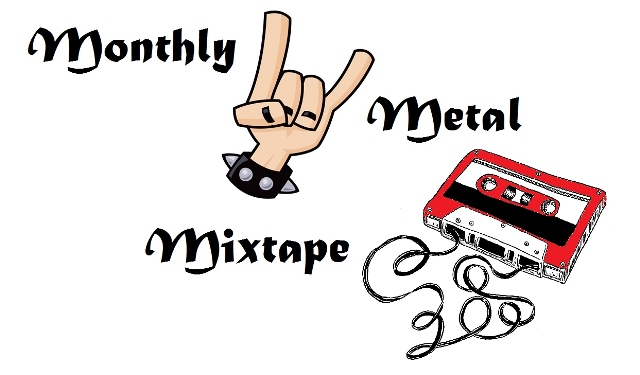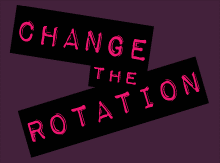
Steve O - February 29, 2016
Bathory
Bathory
Black Mark Production, 1984
While Venom named black metal and Hellhammer introduced corpse paint and lower than low-fi recordings, it is Bathory who were the best of the initial wave of black metal triumvirate. The brainchild of a Swede who called himself Quorthon, Bathory was a brilliant and creative band. Later stretching into the realm of epic Vikings, the early Bathory releases, beginning with 1984’s self-titled debut, were raw, energetic blasts of evil, old-school black metal. Quorthon’s raspy shriek, low-quality recording, buzz-saw guitars, constantly pounding, yet simple, drums, and those Satanic-obssesed lyrics not only laid the groundwork for an entire genre to come, but created a masterpiece of a record. You can hear years of the influence dripping through songs like “Sacrifice” and “In Conspiracy with Satan.” The solos sound rough and raw, instead of shining through, while Quorthon spits out verses like, “Hail satanic majesty / tonight we sacrifice / We drink our own blood / and blasphemy while / the moon is our only light,” in “Necromansy.” It’s a dark classic worth revisiting.
Cattle Decapitation
The Anthropocene Extinction
Metal Blade Records, 2015
So Don’t Panic named Panopticon’s Autumn Eternal as the black metal record of the year last year. As amazing as that record is, I think it is Cattle Decapitation’s The Anthropocene Extinction that I would name as the metal record of the year. I’ve already written about this record once on here, last August, and I still love it. Lyrically brilliant, imposingly heavy, technical but not reaching ‘look at me’ levels, The Anthropocene Extinction is a perfect example of intelligent death metal in 2015. Skillful solos weave between chugging riffs, all accompanied by Travis Ryan’s amazing versatile voice. From his traditional death metal bark, to his extremely low-register grunts, to his haunting and distinctive shrieks, whichever voices he matches to the words works perfectly. Attacking humanity with lines like, “We've made this goddamned place a toilet / Maybe it's high time we flush it / Any shreds of humanity left, we crush it,” (“Mutual Assured Destruction”) and “How can you look me in the eyes and tell me you're proud of what you've done within this life? / Your footprint can't dematerialize and when you die look where you've left your children behind... a world unsuitable for life,” (“Not Suitable for Life”) The Anthropocene Extinction is a lyrical course on the human capacity for absolute environmental destruction and decimation. From the chaotic attack of “Manufactured Extinct” through to the crushing weight of “Pacific Grim,” there is not a bad song on here. And I challenge you to find a line that’s delivered creepier than when Ryan hauntingly, singingly, shrieks, in “The Prophets of Loss:” “We fucking die tonight and that's perfectly alright with me.” Cattle Decapitation have gotten better with each and every record, and you absolutely have to give this one a listen.
Landmine Marathon
Sovereign Descent
Prosthetic Records, 2010
Chaotic is an adjective that isn’t used to describe death metal enough. Too often there’s a routine, if not a predictable pattern, then devoid of surprises. It’s a genre where you know what you’re getting into. Landmine Marathon play death metal, but there’s a bit of a sense of chaos involved. There’s some grind influences shining through, and while Landmine Marathon is at their best when the tempo is full speed ahead, they can slow down and not have it sound out of place, as evidenced by “Rise with the Tide” and “Chained by the Same Fate,” which uses this slow section for a surprisingly sweet, mid-tempo solo. They give of a bit of a Bolt Thrower vibe at times, a comparison made more apt by the lack of recent activity of each band. But the highlights of Sovereign Descent lay in vocalist Grace Perry’s incendiary vocals, erupting with a tortured violence to every line. You can hear the heart and emotion poured into every line, whether it is the slower bellows of “Steadfast Hate” or the blazing screams found in songs like “Shadows Fed to Tyrants,” which at times almost evoke a crusty grind screech. “I hope to outlive beauty and grace / left with only human waste / discussing matters of our place / cloaks and robes set ablaze,” she wails above a furious barrage of pounding drums and powerful riffs. Having seen them live a number of years ago, I can attest to Perry’s commanding stage presence. Few do it better.
Municipal Waste
The Art of Partying
Earache Records, 2007
“Municipal Waste is gonna fuck you up!” Or so everyone shouts at the end of “Born to Party.” Municipal Waste is crossover thrash with an emphasis on fun and a lack of seriousness. I mean, they have songs called “Lunch Hall Food Brawl” and “Septic Detonation.” Despite any puns that title implies, The Art of Partying is a well-played record, with loads of catchy riffs and lots of sing-alongs and a great sense of humor. Besides the epic chant at the end, there’s the chorus of “The Art of Partying” that lays out their agenda perfectly clear: “We don't need their laws together we destroy / And I won't let them ruin the one thing I enjoy / Tonight's the night we finally get to rip this place apart / And this is how we turn your boring party into art.” The songs are fast and they fly right through them, with few chances for vocalist Tony Foresta to rest his bark. But there’s more structure to these songs, especially compared to debut record Waste ‘em All. Municipal Waste would get even thrashier in late records, but The Art of Partying is one with the greatest emphasis on fun. Songs like “The Inebriator,” “Chemically Altered,” and “Beer Pressure,” combined with the aforementioned “Born to Party” and “The Art of Partying” prove that the fun is not in short supply. And if you ever get the chance to see them live, take it. They are even more fun live than they are on the record, and their live energy is contagious. So give it a listen, don’t worry about your ears man.
Oranssi Pazuzu
Kosmonument
Spinefarm Records, 2011
Oranssi Pazuzu are described by Metal Archives as psychedelic black metal. It’s kind of fitting, but they are a tough band to describe. Oranssi Pazuzu is Finnish for orange Pazuzu, a Babylonian demon. Kosmonument fits somewhere in that space between Burzum’s Filosofem-era ambient entries and Neptune Towers. “Komeetta” has a spacy start, but does alternate into a more traditional black metal sound. And vocalist Jun-His does have that raspy black metal shriek down. “Maavaltimo” and “Loputon Tuntematon” are each black metal blazers, but with a chaotic sense of ambience. And then there’s the half of Oranssi Pazuzu that dwells on dark ambience. “Sienipilvi” is a slow-to-mid-tempo start, with Jun-His croaking his hoarse voice along to a pulsating trance of drums and synths. In the middle of “Andromeda” almost everything besides Jun-His’ voice drops out, expect for some odd effects that sound like noises emanating from the deepest reaches of space. “∞” is the purely ambient exit to Kosmonument. Together with “Siirtorata 100 10100,” these songs are the ambient sounds of space. It’s not a place of majestic explorations and great adventures. It’s space as it really is, extreme, cold, bleak, destructive, vast beyond comprehension. That’s what these ambient pieces sound like, and that’s the world that Oranssi Pazuzu bring you into on Kosmonument. It’s not just weird stuff. It’s other-worldly.
Summoning
Oath Bound
Napalm Records, 2006
First off, if you’ve never heard Summoning before, I recommend listening to their song “The Passing of the Grey Company” off of Minus Morgul to get an idea of what this band is about. You’ve done that? Good, now you know what you’re getting into. Two Austrians who go by the names of Protector and Silenius are responsible for this majestic beast. And that’s really what Summoning is. The keyboards and the synths and the newly introduced instrument, a flute, give a majestic, medieval air to this record. But it’s heavy and beastly at the same time. Listen to “Mirdautas Vras.” Yeah, it’s an epic, drawn out at a marching pace with ambient, ceremonious keyboards. But the howls and growls are horrific and hoarse, in the black language of Mordor. Oh yeah, Summoning are obsessed with the worlds of Tolkien. And that lyrical obsession matches perfectly with the music. These are the kinds of sounds you would expect to come out of Middle-Earth, dark and terrifying, yet hauntingly beautiful at the same time. Oath Bound is capped off by the closing epic of “Land of the Dead,” and its chanting, choral, closing refrain. Summoning have mastered their pace; it never seems like they are in a rush, yet the music doesn’t drag either. “Land of the Dead” travels along like this, with the Summoning prescription of melodic keyboards, methodic drums, rasping shrieks, with the added floating flute lines. Other bands use those choir vocals, but they rarely sound as fitting as they do here. “Upon the plain, there rushed forth and high / Shadows at dead end of night and mirrored in the sky / Far far away beyond might of day / And there lay the land of the dead of mortal cold decay.” Summoning are a truly unique band who have created their own sound that you can only understand by hearing.
